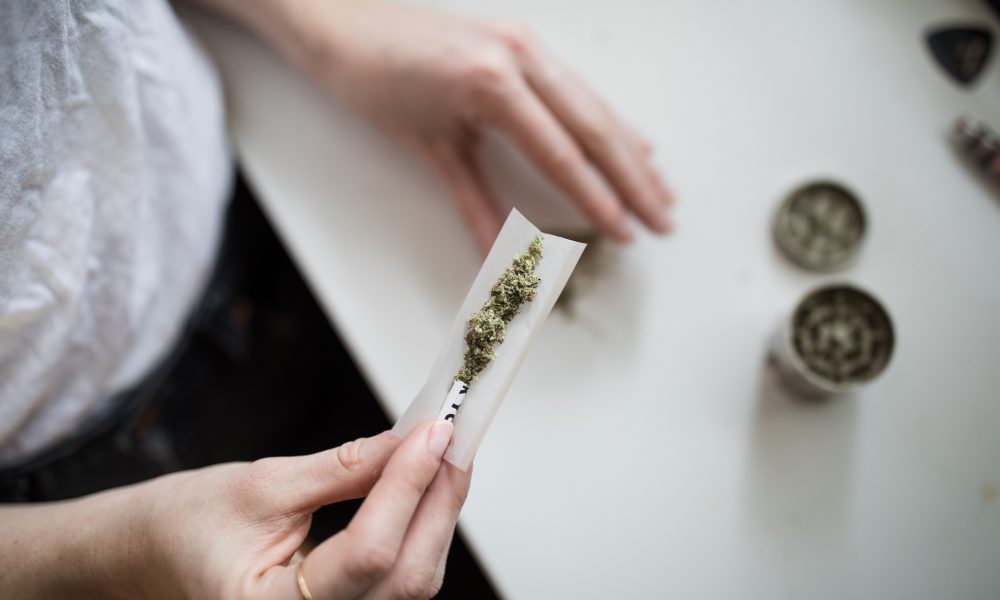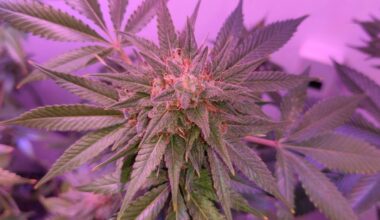Activists in Nebraska unveiled a new strategy this week in their effort to legalize medical marijuana through the ballot box next year, announcing that they’ll seek to qualify a pair of complementary initiatives to put before voters.
The bifurcated approach is an effort to avoid running afoul of the state’s single-issue rule for citizen initiatives, a policy led the state Supreme Court last year to invalidate a medical cannabis legalization measure that had qualified for the 2020 general election.
A separate effort in the legislature this session stalled when supporters failed to muster enough votes to overcome a GOP-led filibuster.
In the aftermath, Nebraskans for Medical Marijuana said in June that the group was drafting multiple, complementary ballot initiatives in addition to an extremely short constitutional amendment that would simply declare people “in the state of Nebraska shall have the right to cannabis in all its forms for medical purposes.”
But the group now tells the Lincoln Journal Star it will scrap that pared-down language in favor of two separate statutory initiatives that would “work in unison”: One would direct the legislature to pass a bill establishing legal protections for patients and doctors around cannabis, while the other would require lawmakers to pass legislation allowing private companies to produce and sell medical marijuana products.
State Sen. Anna Wishart (D), who also co-chairs Nebraskans for Medical Marijuana, told the paper that the two-pronged approach was designed to withstand legal challenges.
“Our main goal is putting in place language that we feel absolutely confident in,” Wishart said, “that we have looked at every type of potential challenge could come and we feel we have addressed it.”
The senator also introduced a medical marijuana legalization bill during the state’s legislative session, but opponents defeated it. Wishart and Sen. Adam Morfeld (D) announced in December that they would also work to put the question of legalizing marijuana for adult use before voters in 2022. It’s not clear if a recreational measure is still in the works or not.
Nebraska’s attorney general said in an opinion in 2019 that efforts to legalize medical marijuana legislatively in the state would be preempted by federal law and “would be, therefore, unconstitutional.”
Nebraskans for Medical Marijuana has been working on the new petitions with help from advocates at the Marijuana Policy Project (MPP), ACLU of Nebraska and other organizations, Wishart told the Journal Star.
Jared Moffat, campaigns manager for MPP, told Marijuana Moment in an email Monday that the new language is now being carefully vetted “and opponents are going to have a much harder time keeping it off the ballot in 2022.”
“Opponents of cannabis policy reform are realizing that it’s almost impossible for them to win at the ballot box,” he said. “As a result, we’re seeing more attempts to overturn the will of the people through legal technicalities and direct assaults on the initiative process itself. Nebraskan patients learned this the hard way last year, but the families and patients fighting for medical cannabis in the state are not going to simply give up when their loved ones’ lives are on the line.”
Crista Eggers, signature drive director for Nebraskans for Medical Marijuana, told Marijuana Moment in June that the plan was to “hit the ground running on a mass scale” beginning this summer to gather signatures to qualify the previously announced short constitutional measure. Those efforts will now presumably be put toward the new two-pronged statutory effort.
“This time around, we are absolutely making sure that everything is very solid and there are no holes in anything and nothing the opposition can use in the future to try to overturn things,” Eggers said.
Under last year’s blocked Nebraska medical cannabis initiative, physicians would have been able to recommend cannabis to patients suffering from debilitating medical conditions, and those patients would then have been allowed to possess, purchase and “discreetly” cultivate marijuana for personal use.
The text of the two new proposals for 2022 is still being finalized.
In a Facebook chat with activists last week, Eggers said the team is “very close to having the petition language ready to file” and that lawyers are vetting the provisions to make sure the opposition doesn’t have vulnerabilities to exploit.
“We can’t take any shortcuts,” she said.
When Nebraskans for Medical Marijuana qualified that measure for the ballot—only to be thwarted by the court—they submitted nearly 200,000 signatures. Eggers said there’s lasting frustration among voters, including those who may not have been especially impassioned about the issue itself, that the court unilaterally prevented them from acting on the proposal.
She also noted that reform efforts underway in surrounding states will serve the campaign by creating regional momentum and pressure.
Even if activists do collect enough petitions to qualify any of the measures, however, they’re expected to face a challenge at the polls. Midterms generally see lower turnout compared to presidential election years, and those who do vote in off-years have traditionally been less supportive of cannabis reform.
Looking ahead to 2022, Nebraska isn’t the only state where voters could see cannabis reform on the ballot.
Advocates in Oklahoma are preparing two complementary ballot initiatives, one that would legalize adult-use cannabis and another that would make changes to the state’s massive medical marijuana system.
Meanwhile a pair of Wyoming reform initiatives—one to decriminalize marijuana possession and another to legalize medical cannabis—recently cleared an initial hurdle on the path to qualifying for that state’s 2022 ballot.
Idaho officials have recently cleared activists to begin collecting signatures for a revised initiative to legalize possession of marijuana that they hope to place before voters on the 2022 ballot. Advocates in the state are also working to qualify a separate measure to legalize medical cannabis for ballot access.
In South Dakota, activists last month filed four separate cannabis ballot measures for 2022.
North Dakota activists are formulating plans for a marijuana legalization measure after lawmakers failed to enact the reform this session.
A group of Missouri marijuana activists recently filed several separate initiatives to put marijuana reform on the state’s 2022 ballot, a move that comes as other advocacy groups are preparing additional efforts to collect signatures for cannabis ballot petitions of their own. Meanwhile, still other activists are focusing on getting the legislature to pass a resolution to place the question of legalization before voters next year.
Arkansas activists are currently collecting signatures for a marijuana legalization measure they want to put before voters next November.
In Maryland, the House speaker has pledged to pass legislation to place a marijuana legalization referendum on the 2022 ballot.
Ohio activists awaiting official clearance to collect signatures for a statewide ballot measure that would effectively force the legislature to consider cannabis reform. Meanwhile, other groups also recently qualified several measure to decriminalize cannabis to appear on local 2021 ballots.
A newly established Texas progressive group unveiled a campaign last month to put an initiative to decriminalize marijuana possession and ban no-knock warrants on this November’s ballot in Austin.
Advocates are also working to put marijuana initiatives on local ballots in South Carolina and West Virginia.
Meanwhile, the Florida Supreme Court has blocked two cannabis legalization initiatives for which activists had already collected thousands of signatures.
Photo courtesy of Philip Steffan.
Medical Disclaimer:
The information provided in these blog posts is intended for general informational and educational purposes only. It is not a substitute for professional medical advice, diagnosis, or treatment. Always seek the advice of your physician or other qualified healthcare provider with any questions you may have regarding a medical condition. The use of any information provided in these blog posts is solely at your own risk. The authors and the website do not recommend or endorse any specific products, treatments, or procedures mentioned. Reliance on any information in these blog posts is solely at your own discretion.







